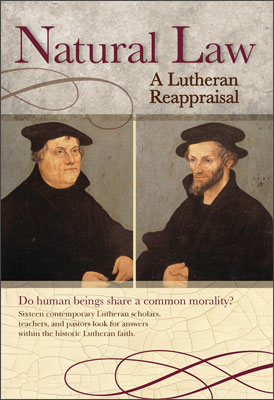The Divine Service is our treasure through which we encounter Christ in His Word and Sacraments. Truly there is no greater treasure available on earth! In this series we are going to dig into the Divine Service to deepen our appreciation for this remarkable treasure.
The Hymn of Invocation
As you know, every Divine Service begins with a hymn. Music has been and will continue to be an integral part of our worship. St. Paul speaks of “psalms, hymns, and spiritual songs” (Ephesians 5:19, Colossians 3:16). He and Silas sang hymns in prison. Even the Lord Jesus and His disciples sang a hymn before leaving the Last Supper for the Mount of Olives. This first hymn of the Divine Service has been called the “Hymn of Invocation” because it is a means through which we invite God to be present in our worship. (To invoke “invoke” means to “call” or “summon” God to be with us.)
The Invocation
The Hymn of Invocation is followed by the Invocation itself. Because God has revealed Himself as the Trinity of Father, Son, and Holy Spirit we invoke His name with these words:
In the name of the Father, and of the Son, and of the Holy Spirit.
Like the hymn of invocation, the invocation is a request for God’s presence. In response, the congregation says, “Amen,” which means “so be it.” Through the “amen” the congregation confirms the minister’s words.
Before you read on, think about the significance of this act. It is no small thing to call on God’s name. We must ask, “Do we really want the Lord God, the Commander of the Heavenly Armies, the All Consuming Fire, the Lion of Judah, the Holy, Holy, Holy One, and the King of the Universe to be present?” Are we so bold to believe we can stand in His presence free from fear of judgment? Can we blithely invoke His Name and simply expect Him to obey our summons? Do we carelessly handle an all-consuming fire? Would we thoughtlessly beckon a lion as a domesticated house cat? How have we come to invoke His Name so heedlessly? This invocation is a bold and daring act of faith, one in which we put our lives on the line!
It is no accident then that worshipers are encouraged to make the sign of the cross when calling upon God’s Name. That cross procured peace with God (Colossians 1:20). That cross allows us to approach God without fear of condemnation (Romans 8:1). And the effects of that cross are given to us in, with, and under the waters of Holy Baptism. The Bible tells us that we are joined to Christ in and through Baptism (Romans 6:3–5). For this reason the one being baptized receives the sign of the cross both upon his forehead and upon his heart to remind him that he has been redeemed by Christ the crucified. Crossing ourselves in the act of invoking God’s Name reminds us of our Baptism (“in the name of the Father, and of the Son, and of the Holy Spirit,” Matthew 28:19) and of the glorious promises of God that allow us to call upon God without fear.

The Confession
Upon honest reflection, we know that we have not been the people Christ has redeemed us to be. We have not lived as the saints the Spirit sanctified us to be. Sin clings to us like stink to manure. We come into God’s presence dirty and sinful. For this reason we confess:
I, a poor, miserable, sinner confess unto You all my sins and iniquities with which I have ever offended You and justly deserved Your punishment. But I am heartily sorry for them, and I pray You of Your boundless mercy and for the sake of the holy, innocent, bitter sufferings and death of Your beloved Son, Jesus Christ, to be gracious and merciful to me, a poor, sinful being.
This is an appropriate and necessary start to our worship. It rightly confesses our sinful condition as it rightly acknowledges Christ as the means through which God gives mercy. But, you may ask, what is God’s response to our confession?
The Absolution
After boldly invoking God’s Triune Name into which we have been baptized and imploring Him for mercy and forgiveness in the confession of sins, we hear the very words of Christ issue from the pastor’s lips. Consider the astonishing words he speaks:
Upon this your confession, I, by virtue of my office, as a called and ordained servant of the Word, announce the grace of God unto all of you, and in the stead and by the command of my Lord Jesus Christ I forgive you all your sins in the name of the Father and of the + Son and of the Holy Spirit.
The Office
First, the pastor references an office. He isn’t referring to the place his books are shelved; he’s talking about the Office of the Holy Ministry. As the Augsburg Confession (the foundational document of the Lutheran Confessions) explains, this Office has been established by God “to preach the gospel, to forgive or retain sin, and to administer and distribute the sacraments” (XXVII: 5).
Called and Ordained Servant of the Word
This office is filled by men called by God (through congregations) and ordained (recognized as fit and qualified by the church for ministry). This call and ordination bring not power, but servanthood. For this reason a Lutheran pastor covers himself with an alb (a type of robe which symbolizes being clothed with Christ in Baptism) and a stole (to symbolize that he shares and bears the congregation’s burdens with them). In this way he deemphasizes himself and directs attention to Jesus.
His servanthood, however, takes nothing away from the authority with which he is called to speak. With the authority of God’s Word he is to “preach the word; be ready in season and out of season; reprove, rebuke, and exhort, with complete patience and teaching” (2 Timothy 4:2).
Announce the Grace of God
After indicating his authority and servanthood in the Word, the pastor, with great joy and confidence, prepares the worshipers to receive the grace of God. Surely this is a remarkable announcement! If we have missed the significance of this announcement it’s because we have taken God’s grace for granted. It is no small thing to claim the authority to give God’s grace. If it weren’t for the pastor’s call and ordination into the Office of the Ministry and the authority of God’s Word, his announcement would ring hollow. Because, however, God has designated the pastor as His spokesman, the words carry great weight and significance. The Small Catechism explains, “when the called ministers of Christ deal with us by His divine command … this is just as valid and certain, even in heaven, as if Christ our dear Lord dealt with us Himself.”
“In the stead and by the command of my Lord Jesus I forgive you all your sins …”
Now the pastor delivers God’s grace to God’s people. In the place and by the command of Jesus, the called pastor forgives sins! These are healing words to the contrite confessor. God forgives our sins! The words may have been spoken by the pastor, but they are, in reality, Christ’s words.
The Augsburg Confession declares, our “people are diligently instructed in how comforting the word of absolution is and how highly and dearly absolution is to be esteemed. For it is not the voice or word of the person speaking it, but it is the Word of God, who forgives sin. For it is spoken in God’s stead and by God’s command.” It continues, “God requires us to believe this absolution as much as if it were God’s voice resounding from heaven and that we should joyfully find comfort in the absolution, knowing that through such faith we obtain forgiveness of sins” (XV:2–4).
With our sins forgiven by Christ, through His servant, we joyfully enter the Service of the Word with the Introit, which we’ll explore in the next article of this series.
Pastor Jonathan Conner of Zion Lutheran Church in Manning, Iowa, is a former board member for the Hausvater Project.




